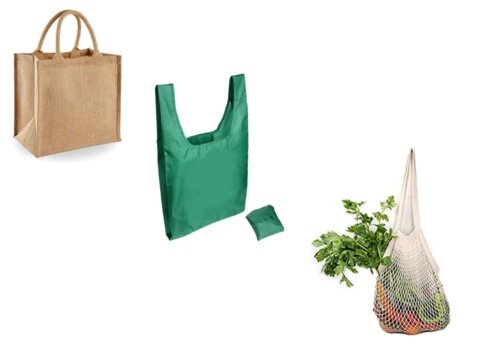5 practical ways to help with everyday indecision (and reduce your carbon footprint)
You don’t always have to know exactly what you want to squash indecision. Most of the time knowing what you don’t want will work just as well.
My process is simple: narrow down your choices, make a good judgement call, and get on with your life.
Here are some of the biggest points of indecision and how you can help yourself make better decisions.
1. Where to eat
Life is better when we spend less time worrying about where to eat and take more time to enjoy what we’re eating. The key to deciding where to eat is setting clear criteria.
Pick a handful of attributes like healthy, affordable, local, and not a chain. Then search your area for options and write down the first three that meet your criteria. Once you have those three, set your timer for 5 minutes and look at the three you’ve chosen. Make a decision at the end of your timer and go! You’ll rarely be disappointed.
If you’re considerate of your environmental impact you should adjust your criteria to include local restaurants and vegetarian options; exclude places that use styrofoam and plastics.
2. What to eat
Finding a place to eat is one thing, deciding what to order is another…
If you’re anything like me, you think about food pretty much all the time. Well, not all the time… but if my daily thoughts were shown in a pie chart, food would definitely be the biggest piece (mmm pie…). Being hungry makes decision making even harder, but these tips should help.
Can’t more restaurants have menus like In-N-Out?
When you find yourself in one of those restaurants with a five-page menu, you can confidently narrow down your choices by following one simple rule. Don’t order meat. You’ve just cut the amount of decision making you need to do by 80% or more depending on where you are. Not only will you be healthier, but you’ll also drastically reduce your impact on the environment.
If you’re still having trouble deciding between vegetarian dishes, try to narrow it down to 3. Then ask whoever you’re with to chose for you. Or, if you’re alone (or don’t trust your friend), ask the waiter. They always know best.
3. What to buy
Sometimes the urge to purchase is more than we can resist. Those marketers sure have gotten good at convincing us we need useless stuff…
And we often ask ourselves, “Am I going to regret buying this?” (The answer is yes)
The biggest rule: If there’s any doubt in your mind, don’t buy it. That thing will still be there tomorrow if you decide it really will make your life better. Limited time offers and clearance sales are just tactics to try to instill a sense of urgency so consumers are compelled to buy. You’re smarter than that!
The next best thing to do is give yourself 24 hours to think about it. If you still think you need it after a day, and it’s worth going back to the store to get it, add it to your shopping list and pick it up next time your out. This applies to online shopping too (which can be more eco friendly), but beware that this convenience makes it much easier to cheat the 24 hour rule.
All in all, the less you consume the smaller your carbon footprint. If you make these purchasing tips a habit you can cut down the amount of useless crap you buy dramatically. You’ll have less junk cluttering your house and your mind. For more tips check out our guide on making smart purchasing decisions.
Impulse buying applies to food too. Food waste is an ugly problem we can all cut down on. The two best ways to prevent impulse purchases when shopping for food is to avoid shopping when you’re hungry and make a list. Eat before you go and make a list of things you need while you are home (and stick to it).
4. What to wear
If you’re having trouble deciding what to wear, you probably have too much clothes. Thinning out your wardrobe might sound daunting to some, but decluttering will clear your closet and your mind.
It’s surprising how easy it is to accumulate stuff over time without noticing. One day you have a nice clean apartment, next thing you know your clothes rack is bending under the weight of all your shit.
Some people like to do spring cleaning, others wait for the neighborhood garage sale. If you tend to accumulate stuff you should 1. Make it a point to stop this problem at the source and 2. Set a reminder on your phone or calendar to do a cleansing of your belongings.
Tip: If you haven’t worn an item in the last month (within the same season) then it’s probably safe to donate it.
5. Should I stay or should I go? (FOMO)
Nobody really cares if you don’t go to the party. Go if you want to, not because you think people will be mad if you don’t.
If you found this helpful (or entertaining) you can get infrequent updates when we publish tips for conscious consumers:
[yikes-mailchimp form=”2″ submit=”Whammy!”]

